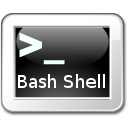
I am a new to shell scripting. How do I check for NULL value in a Linux or Unix shell scripts?
You can quickly test for null or empty variables in a Bash shell script. You need to pass the -z or -n option to the test command or to the if command or use conditional expression. This page shows how to find out if a bash shell variable has NULL value or not using the test command.
To find out if a bash variable is null:
- Return true if a bash variable is unset or set to the null (empty) string: if [ -z "$var" ]; then echo "NULL"; else echo "Not NULL"; fi
- Another option to find if bash variable set to NULL: [ -z "$var" ] && echo "NULL"
- Determine if a bash variable is NULL: [[ ! -z "$var" ]] && echo "Not NULL" || echo "NULL"
Bash shell find out if a variable has NULL value OR not
Let us see test command syntax and examples in details. The syntax is as follows for the if command:
my_var="nixCraft" if [ -z "$my_var" ] then echo "$my_var is NULL" else echo "$my_var is NOT NULL" fi |
OR
my_var="" if test -z "$my_var" then echo "$my_var is NULL" else echo "$my_var is NOT NULL" fi |
Another option to check if bash shell variable is NULL or not
[ -z "$my_var" ] && echo "NULL" [ -z "$my_var" ] && echo "NULL" || echo "Not NULL" |
OR
[[ -z "$my_var" ]] && echo "NULL" [[ -z "$my_var" ]] && echo "NULL" || echo "Not NULL" |
OR
## Check if $my_var is NULL using ! i.e. check if expr is false ## [ ! -z "$my_var" ] || echo "NULL" [ ! -z "$my_var" ] && echo "Not NULL" || echo "NULL" [[ ! -z "$my_var" ]] || echo "NULL" [[ ! -z "$my_var" ]] && echo "Not NULL" || echo "NULL" |
How to find NULL value in shell if condition on Unix
The -n returns TRUE if the length of STRING is nonzero. For example:
#!/bin/bash var="$1" if [ ! -n "$var" ] then echo "$0 - Error $var not set or NULL" else echo "$var set and now starting $0 shell script..." fi |
Example: Determine if a bash variable is NULL
The following shell script shows various possibilities with bash/sh/posix based shell:
#!/bin/bash # Purpose - Test for NULL/empty shell var # Author - Vivek Gite {htttps://www.cyberciti.biz} under GPL 2.0+ DEMO="cyberciti.biz" HINT="" ##################################### # Do three possibilities for $DEMO ## ##################################### for i in 1 2 3 do case $i in 1) DEMO="nixcraft.com"; HINT="value set";; 2) DEMO=""; HINT="value set to empty string";; 3) unset DEMO; HINT="$DEMO unset";; esac ############################################### # Update user with actual values and action # $DEMO set to a non-empty string (1) # $DEMO set to the empty string (2) # $DEMO can be unset (3) ################################################ echo "*** Current value of $DEMO is '$DEMO' ($HINT) ***" ######################################################################## ## Determine if a bash variable is NULL, set, unset or not set at ALL ## ######################################################################## if [ -z "${DEMO}" ]; then echo "DEMO is unset or set to the empty string" fi if [ -z "${DEMO+set}" ]; then echo "DEMO is unset" fi if [ -z "${DEMO-unset}" ]; then echo "DEMO is set to the empty string" fi if [ -n "${DEMO}" ]; then echo "DEMO is set to a non-empty string" fi if [ -n "${DEMO+set}" ]; then echo "DEMO is set, possibly to the empty string" fi if [ -n "${DEMO-unset}" ]; then echo "DEMO is either unset or set to a non-empty string" fi done |

Conclusion
I suggest that you read the following resources for more info or see GNU/bash man page here:
Discover more from WIREDGORILLA
Subscribe to get the latest posts sent to your email.
